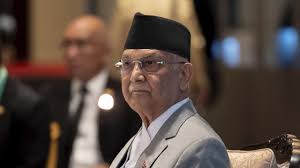
Authorities in Somalia have detained four TikTok users accused of mocking President Hassan Sheikh Mohamud in a viral dance video. The clip featured a group of young men performing to a remixed version of a 2022 campaign song, with altered lyrics that reportedly included offensive language directed at the president.
Police confirmed the arrests and stated that the individuals are in custody pending formal charges. No public statements have been made by the suspects since their detention.
While Somalia has previously prosecuted social media influencers for content deemed clan-insulting, inflammatory, or immoral, this marks the first known case involving criticism of a high-ranking political figure. In a similar incident last year, seven TikTokers were sentenced to six months in prison for allegedly inciting unrest and promoting immorality.
The original video has since been deleted, but copies continue to circulate widely across TikTok and other platforms. Somali law enforcement has classified the video’s content as criminal, citing national legal standards.
Police spokesperson Gen Abdifatah Aden issued a warning to the public, emphasizing that any actions perceived as disrespectful toward national institutions or leaders would be met with legal consequences.
The arrests have reignited debate over the role of social media in Somalia, especially TikTok, which has become a hub for youth-driven political satire, commentary, and entertainment. While some citizens have voiced support for the detained creators, others argue that freedom of expression must have limits particularly in a country still navigating political instability.
TikTok remains widely used across Somalia and its diaspora, serving not only as a creative outlet but also a platform for business and social engagement. In 2023, the Somali government considered banning the app, citing concerns over national security, misinformation, and declining moral standards. Although the ban was never implemented due to public opposition, officials continue to monitor the platform closely, warning against the spread of extremist or defamatory content.



